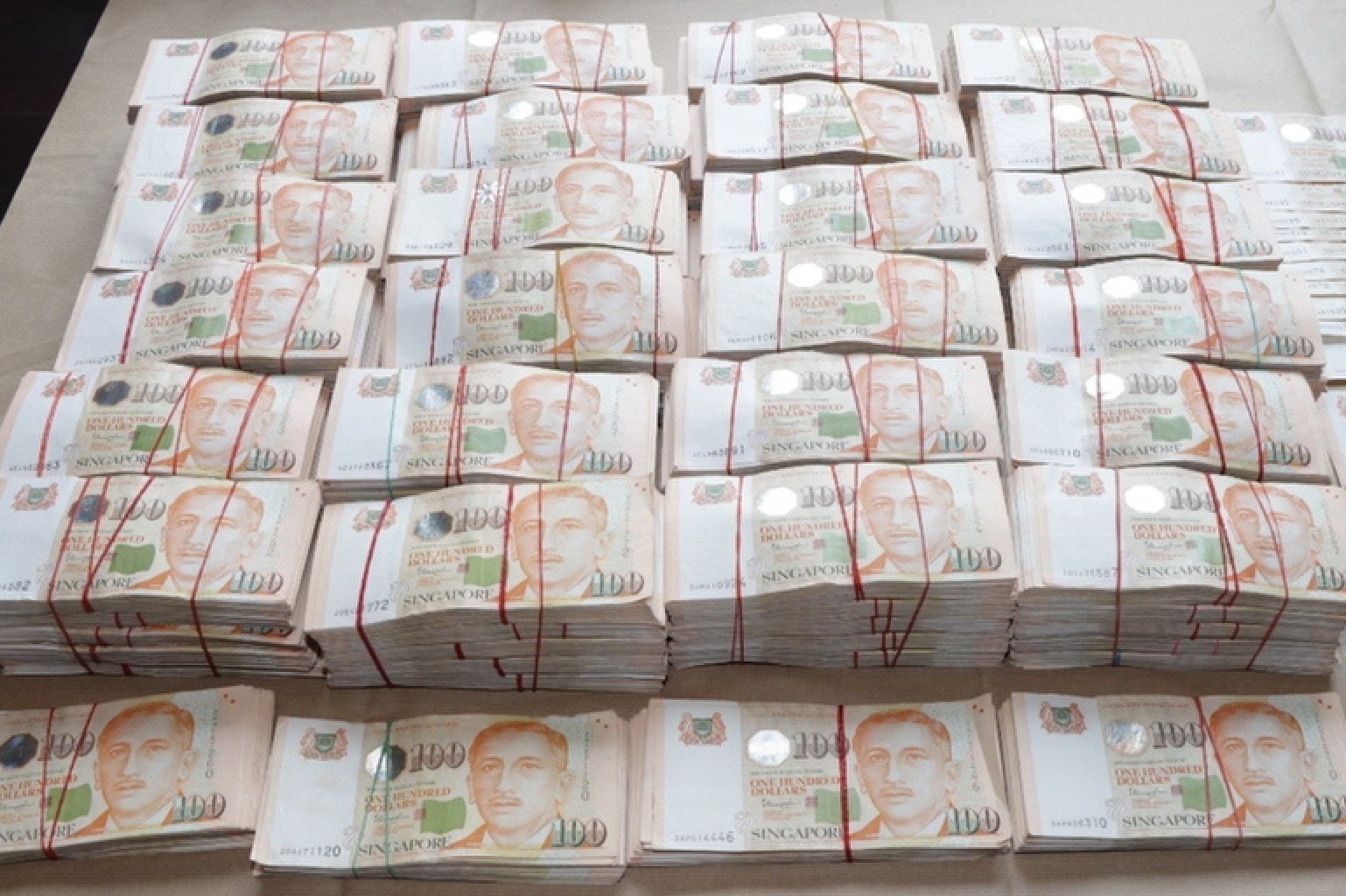The prosecution had sought a jail term of between 17 and 18 months, while the defence had asked for a lower sentence of 14 1/2 months.
Delivering his brief remarks on his decision on Monday, District Judge James Elisha Lee outlined the general need for deterrence for such transnational crimes to protect Singapore’s reputation as a financial hub.
He also noted the higher amount involved across Su’s charges – compared to those already convicted – and other aggravating factors like premeditation and the multiple banks that became victims to Su’s crimes.

However he also took into consideration Su’s plea of guilt and his agreement for the state to forfeit 95.5 per cent of his assets.
Su’s jail term was backdated by almost 10 months as he has been in remand since August 2023.
The other nine linked to this case were sentenced to between 12 and 16 months’ imprisonment.
In a statement to the media after Su’s hearing, chief prosecutor Tan Kiat Pheng said that the amounts involved across the 10 cases “make this one of the largest money laundering cases that Singapore has prosecuted”.
“The swift prosecution of these 10 cases is a strong message to would-be criminals that Singapore will not tolerate attempts to flout our laws,” he added.

The court previously heard that Singapore Police Force’s Commercial Affairs Department had been receiving information of possible money-laundering activities and the use of forged documents to cover up sources of funds into Singapore bank accounts since 2021.
Su had around S$187 million of assets – comprising cash, cryptocurrency, properties and other luxury items – seized or subjected to prohibition of disposal orders.
They include assets that he funded but were held under his wife’s name.
He moved his children to Singapore in August 2019 as he wanted them to study here. He then followed suit the next year.

On August 15 last year, the police raided Su’s home and seized S$550,903 in a case from a safe in his master bedroom – comprising money he earned from providing the illegal gambling service.
Before that, on March 5, 2021, Su’s relationship manager at Maybank had received an email from the bank’s financial crime compliance unit that highlighted two suspicious deposits made into Su’s account, amounting to S$1,029,970 and S$969,970.
When the manager asked Su to explain the source of the funds, he said that they came from a purported sale of property in Burj Khalifa in Dubai and showed a sale contract, which turned out to be forged.
On Monday, District Judge Lee said that the overriding consideration of general deterrence in meting out Su’s sentence “cannot be overstated”.
He added that the “compelling need” to protect Singapore’s reputation as a major financial hub from the adverse impact of transnational crimes has been emphasised by the court.
The accused’s offending … demonstrates a high degree of disregard for the law
On the offence of possessing benefits from criminal conduct, the judge outlined the transnational element of the crime, the substantial amounts involved, and persistence of offending as aggravating factors.
Besides the charge involving S$550,903, which the prosecution proceeded with, three similar charges were taken into consideration. Two charges involved amounts of S$5 million each and the third involved S$7 million.
“This is indicative of the scale and significance of the accused’s offending and demonstrates a high degree of disregard for the law on the part of the accused,” Lee said.
On the offence of deceiving Maybank about the source of funds using a forged document, the judge said that Su’s crimes undermined the integrity of Singapore’s financial system.
The use of forgery indicated the premeditation involved.
The judge also noted that the offences – including the charges taken into consideration – occurred over a period of about 2.5 years between November 2020 and May 2023.
According to court documents, these charges also involved deceiving other banks.
“This demonstrates, in my view, persistence in offending and disregard for the law on the part of the accused,” the judge said.
Lee also agreed with the prosecution’s argument the fact that Su had deceived more than one bank also aggravated his offences.
For possession of money which constitutes benefits from criminal conduct, Su could have been fined up to S$500,000, jailed up to 10 years or both.
For fraudulently using a forged document and passing it off as a genuine one, he could have been jailed for not longer than four years, be handed a fine, or both.

